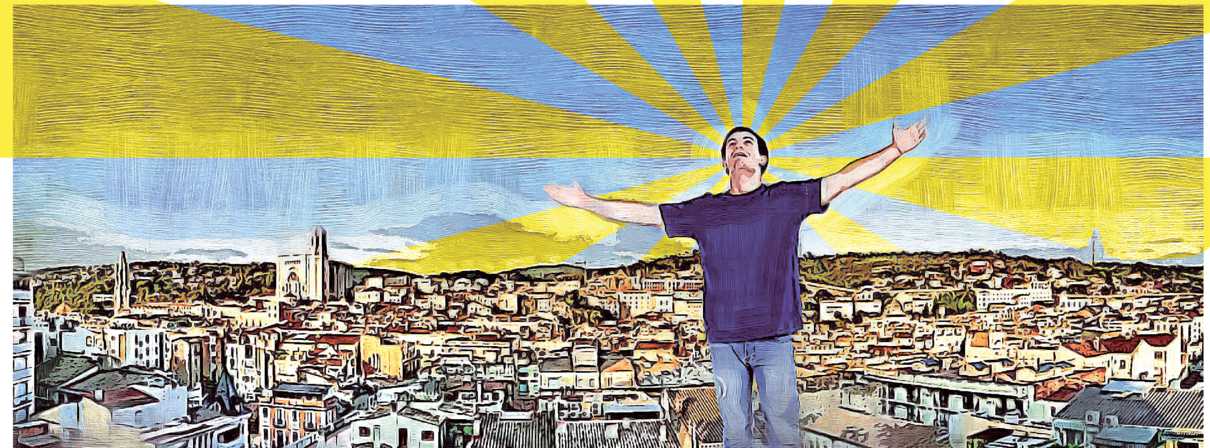THE CULTURAL TIGHTROPE
A homage to Girona
I've realised I must follow my last column praising the Catalan capital with a homage to what was my home for the past ten years, the wonderful Medieval city of Girona. The label “city” feels misleading, however, purely because I've lived in cities my whole life and Girona felt anything but that. With a population of barely 100,000 and a traditional way of life which at times seemed untouched by the outside world, it was almost a village to me.
What I hadn't anticipated when we headed to my wife's place of birth in search of a peaceful family life unattainable with a year-old baby in Barcelona was the oldfashionedness of the place, not only in terms of appearance - with its old cobbled streets winding majestically up from the Old Town to the famous cathedral with the world's widest Gothic nave - but also way of life. Girona has embraced modern life, of course, but it has also fervidly clung onto its connection with nature and traditional ways of living. There were times over our ten-year stay that I was surprised not to turn a corner and see a donkey being shepherded down the Rambla or a bunch of chickens running free across the plaça.
Around the city's thriving traditional market in plaça Lleó people still pass the time of day and discuss local affairs, enquiring what has become of family, friends and acquaintances from years gone by. Although this can be testing for your newly-arrived guiri who knows nothing of Avi Joan's market stall or Iaia Joana's cousins in Olot, it is testament to the preservation of a culture that these questions comprise a good part of the daily conversation.
One of the things I loved about Girona's oldfashionedness is the importance awarded to traditional natural treatments, remedies and practices, with little old herboristeries co-existing alongside new alternative medicine centres. As most people now know due to the gastronomic fame the region has achieved in recent years, this also extends to blending the traditional with the innovative in preparing and cooking food with locally sourced and natural ingredients.
It's true that Gironins do not have a reputation for outgoing or extrovert behaviour, and it isn't always easy to integrate into a society so wary of outsiders given its conflictive history, but if you speak the language and show a willingness to learn about local customs, you will be toured in style around this magnificent city by a people proud of their local history and traditions. And you may not be offered a seat at El Celler de Can Roca, one of the world's best restaurants and fully booked from now 'til God knows when, but you will be invited to sit down and enjoy some locally produced embotits and formatges with pà amb tomaquet, chased down with a potent vi negre and, if you're lucky, a glass of ratafia - the local herb liqueur, intoxicating in every sense. Don't pass it up if you get the chance.

